The inhumans face off against the Progenitors in this grand finale, from the creative team of Al Ewing, Kevin Libranda, José Villarubia and Mike Del Mundo; cover by Daniel Acúna.
Let’s set the stage…
The inhumans’ powers and culture are derived from the mysterious, mutagenic substance known as Terrigen. Millennia ago, the space-faring Kree had come to earth and conducted experiments on a group go prehistoric humans, altering their DNA so that they could be changed by way of exposure to the gaseous rendering of Terrigen Crystals. The subjects of these experiments would go on to found Attilan and call themselves Inhumans.
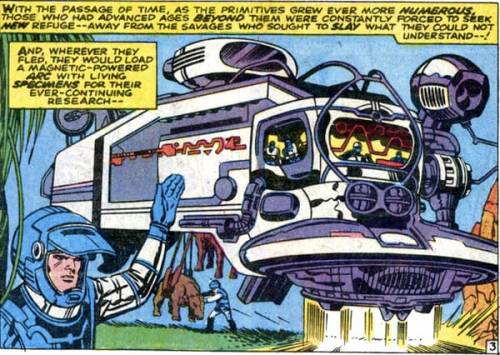
Central to their customs was that each Inhuman would undergo Terrigenesis, transformation by way of the Terrigen Mist, at the time of their adolescence. This continued on for thousands of years as the Inhumans remained isolated and sequestered from the human world.
Only the kings and queens who ruled Attilan knew the secret truth that there were many other Inhumans living amongst the humans. Numerous Inhumans had left Attilan over the years, integrating into human society and quietly passing along the genetic potential for Terrigenesis.
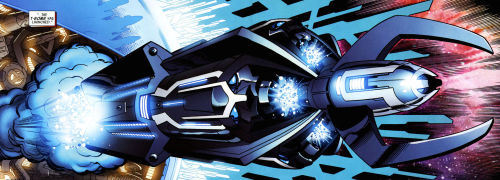
When the world was threatened by Thanos and the cascade of encroaching alternate realities, King Black Bolt opted to take a drastic course of action. All of the Terrigen was made into a bomb that, once detonated, created a set of Terrigen Clouds… clouds that would flow over the earth and would trigger transformations among a legion of new Inhumans all about the globe.
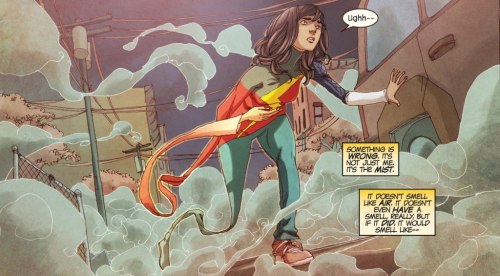
It was a decision Black Bolt had made without his wife’s consort or consent. Since childhood, Medusa had been much more than Black Bolt’s friend and later wife… she was his confidant, his voice. Yet he took her for granted, keeping her in the dark over his ongoing affairs with The Illuminati and the dire threats they were seeking to address. It took its tole on their relationship and his disappearance following the Infinity Event proved to be the final straw. Medusa was made the new queen of a new Attilan and by royal decree she annulled their marriage.
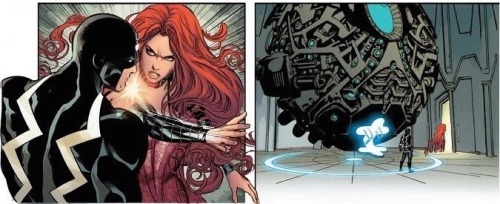
Catastrophe was ultimately averted, but a new peril soon came to pass when it proved that the Terrigen Clouds were deadly poisonous to The inhumans’ cousin race, The Mutants. So to prevent the genocide of all Mutants, Medusa was forced to destroy the Terrigen Cloud, ridding the world of the last of the Terrigen… saving the Mutants but, in so doing, dooming the future of Inhumanity.
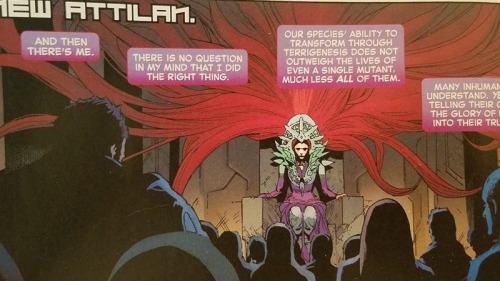
In the wake of her actions, Medusa chose to abdicate the throne and dissolve the Inhuman Monarchy; selecting Iso as New Attilan’s leader until democratic elections could be held. Medusa’s final order as queen was that the treacherous Maximus being exiled… not just from New Attilan but from Earth itself. Maximus was to be sent to an ancient prison located on the far side of the galaxy. Yet Maximus’ cleverness was once again his salvation. Through trickery and guile, Maximus orchestrated matters so that it was his brother, Black Bolt, who was sent to the space prison whilst Maximus remained behind disguised as his as his brother.
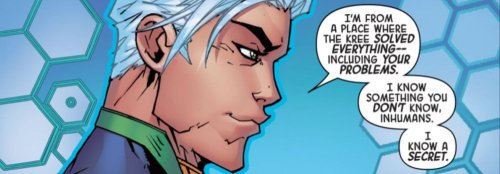
Noh-Varr, a Kree adventurer from another universe sought out The inhumans, informing them that all was not lost. The Kree Empire that he hailed form was far more advanced, more knowledgeable over their own origins as well as that of the Inhumans. He possessed an understanding over Terrigen that could be used to attain a new supply… a new future for Inhuman-kind.
A pilgrimage was set out on as Medusa led a team into the cosmos to obtain this new salvation. She was accompanied by Noh-Var, her sister, Crystal, the empath Swain, the geokinetic Flint, and Medusa’s longtime friend and protector, Gorgon. Black Bolt joined this mission as well, but it wasn’t long before his true identity was revealed and the team discovered that had unwittingly brought along Maximus the Mad on this most crucial of missions.
A new development occurred that forced them to shelve the matters of dealing with Maximus and rescuing Black Bolt. Medusa divulged that has recently discovered that she was dying. Her strength had been waining ever since she destroyed the Terrigen Cloud, then her hair began to fall out and she could put the matter off no long. Death was near.
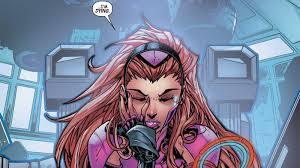
Noh-Var’s efforts to identify the etiology of Medusa’s illness proved to be just as quixotic, bizarre and difficult to understand as his explanation of what exactly Terrigen is. Science, magic and poetry are not disparate entries in Noh-Varr’s philosophy, rather they are puzzle pieces that fit together to create a grander gestalt transcending the confines of conventional thinking. The Terrigen was not sentient per se; yet also not completely without a sense of self agency. It was Medusa’s hand that destroyed the Terrigen and now that Terrigen that remained within her was bringing about this terminal illness as a kind of ’poetic revenge’ ,,,a death by metaphor.
Stubbornly, Medusa refused to die quietly and was intent on going out on her feet. She led the team to Hala, the former home planet of The Kree, as well to NovaHalla, the new refuge for The Universal Inhumans. Throughout their adventures they gathered the clues ultimately that ultimately led them to powerful race of space demigods known as the Progenitors.
Just as the Kree had utilized Terrigen to alter the evolution of The Inhumans, so too did the Progenitors done the same for the Kree, changing them from a primitive and savage race to a highly advanced and space faring peoples; although not with Terrigen but rather with the purified Primagen from which Terrigen is merely a diluted derivative.
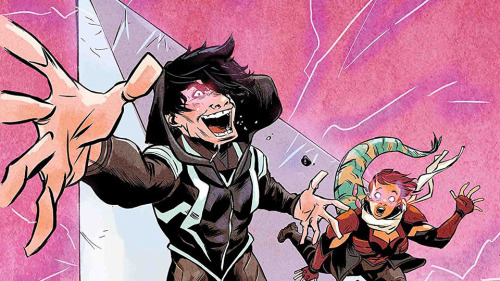
Although an unwanted stowaway, Maximus proved to be very helpful throughout this endeavor. Maximus was aware of this mysterious Primagen. It is what his parents considered the ‘Prima Materia,’ the key to understanding and obtaining the true destinyy of their people. As well as the reason why both Maximus and his brother were exposed to an ultra-purified strain of Terrigen when they were both still in the womb.
The team ultimately made their way to The World Farm, the strange home of the Progenitors. It was an unwelcoming world, a manufactured solar system where robotic-like beings cultivated mutated amalgams of science and nature as a means of furthering the advancement and of their own quasi-evolution. Here the Primagen was shown to be The Progenitor’s life-blood, a complex compound of organic material infused with billions of microprocessors facilitating its mutagenic properties.
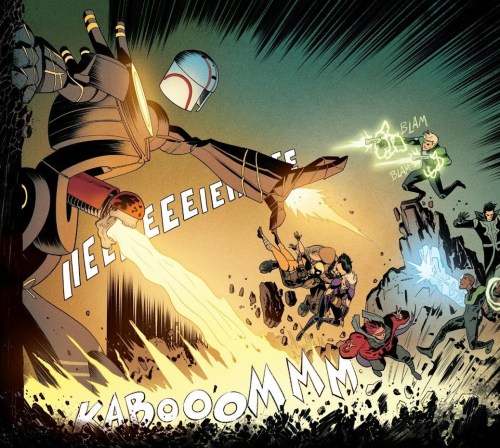
The Royals arrival on the World Farm was viewed by The Progenitors as little more than an infestation of pests… inferiors beings who needed to be eliminated so to ensure the clockwork functioning of the farm. The Royals had to battle off these beings in a desperate effort to obtain a cache of the Primagen and escape with their lives.
They were no match for these awesome beings, yet managed to discover a weakness in them. The Progenitors synthetic minds worked on a level of pure logic and rationality. As such these beings had no concept of emotion, sentimentality and affect. Swain and Maximus combined their powers to flood their attacker with intense emotional sensations, befuddling its circuits and left it vulnerable to being destroyed. They Royals ultimately succeeded in fleeing the planet, but it came only through the noble sacrifice of Gorgon who remained behind to fight off the attackers whist his colleagues escaped.
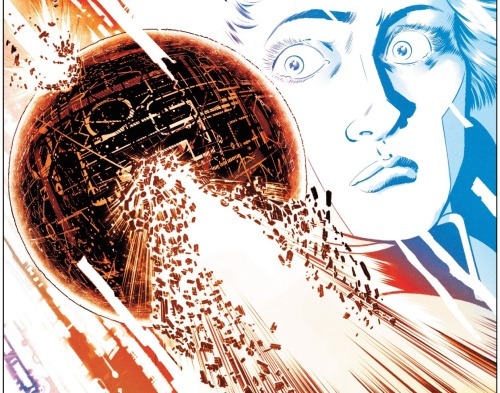
In the midst of trying to discover a means of returning home, Medusa granted Maximus permission to touch the Primagen. Doing so acted to supercharge his mental powers, allowing him to experience his past, present and distant future all in the same moment. As such he was able to gain access to his experiences some five thousand years in the future. To this end, he came to realize the ultimate folly of The Royals’ actions.
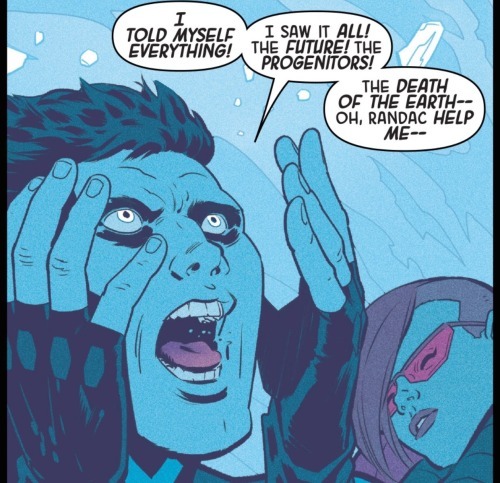
Thieving the Primagen, holding their own against The Progenitors merely acted to pique these beings’ curiosity… to view The Inhumans as possessing the potential for raw material that could be harvested, assimilated and utilized to further their own advancement. The Royals had not only doomed themselves, but all of earth as well. The Progenitors would return and the result would be the destruction of the planet and all life thereon.
A desperate plan was devised once the Royals returned home. The Progenitors were coming and they could not be allowed to set foot on earthly soil. To this end, the battle station of New Arctillan was built on the oxygen rich Grey Area of the moon, located on the satellites’ dark side. There the Inhumans would mount their defense against the Progenitors, doing all they might to prevent these nigh-powerful being from reaching earth.
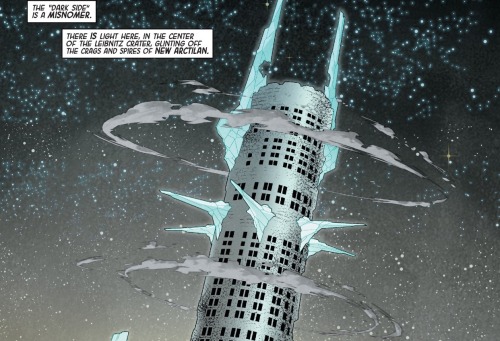
The task before them seemed all but insurmountable, yet Maximus had a plan. The Progenitors had demonstrated an Achilles heel once before in their vulnerability to human emotion… perhaps once more this might be utilized to obtain victory.
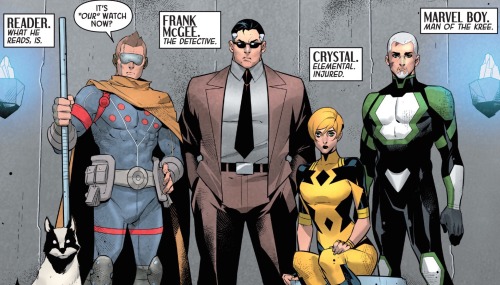
To this end, Maximus had assembled a crack team: Swain, who can wield and manipulate affect; Panacea, Swain love and anchor to keep her balanced; Frank McGee the detective whose analytic mind might compensate for the illogicality of emotion, Noh-Varr, the Master tactician; Crystal, whose abilities to harness and control the elements could loan itself well to the same flowing nature of emotion; and Reader, whose reality warping abilities will prove key to entering into a realm where the Inhumans and Progenitors might be on equal footing: The Astral Plain.
Maximus’ mind bending strategy makes little sense to the others, especially Reader who insists that this is simply not how his powers work. He can make real what he reads, but he has the actually understand such words… it needs to be a real world that his mind can truly comprehend.
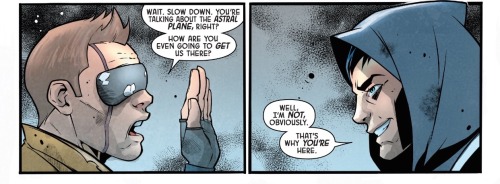
Maximus counters… summoning his inner-Jacques Lacan, he explains that words are inexact stand-ins, mere approximations of thoughts and feelings… notions that at their heart defy the limitation of speech or writing.
Maximus creature the nonsensical word, ‘floob’ presenting it as a shorthand for the neitherworld of thought and emotion. He’d written this term on a Braille tile, insisting that reading this tile will succeed in allowing Reader to transporting them all to this conceptual plain.
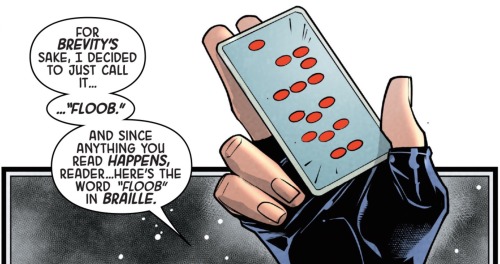
Reader remains unconvinced. He’s not sure it could work and, more importantly, he has grown weak from using his powers to teleport to the moon. He is going to need rest and recuperate his strength if he is to transport the entirety of the team to this Ill-defined realm of Floob.
Yet such time doesn’t exist. The Progenitors have arrived, laying siege to New Arctillan. Overlord Class and Exterminator Class Progenitors attack and it will only be a matter of moments before all of Arctillan and it’s inhabitants are eliminated.

Maximus and Reader have to act quickly… there is only enough time and energy to transport one Inhuman to Floob and Maximus makes his decision in an instant, instructing Reader to send Medusa. Before she can object, Medusa finds herself relocated to a mysterious and ethereal plain somewhere between thought and feeling (breathtakingly depicted by Del Mundo’s magnificent illustration).
In the desert like atmosphere of this strange realm Medusa views the decrepit statue of her former husband, Black Bolt, looking down upon her, as well as the ruined stature of her one time lover, Gorgon, at her feet.
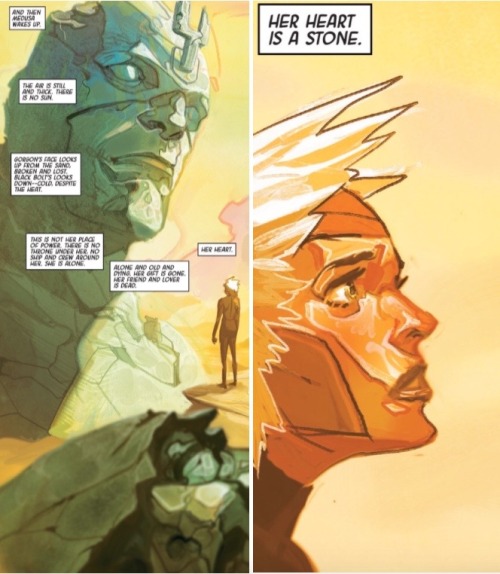
Medusa is confused that Maximus had chosen her as the sole combatant sent into Floob… surely she is the least optimal candidate. All that has transpired has been her fault. She destroyed the Terrigen, she has suffered its revenge; it was her folly that brought earth into the crosshairs of The Progenitors, she who sacrificed Gorgon to facilitate their cowardly escape. All of this guilt and self condemnation has hardened her, making her feel her heart has been rendered little more than a dead stone.
Exposure to the Primagen had supercharged the abilities of her colleagues, but for her it had no effect. She sees her gift, her very Inhumanity, as dead and gone and hence the Primagen can and has offered her nothing.
Medusa has little time to wallow in her self doubt. This realm is not without predators and a blackened serpentine energy ensnares her like a python, curling about her legs and pulling her toward a certain demise.
She struggles against this force and as she dose her mind drifts to the man whom she had once so depended on, who in the past would always come to her aide when facing such dire circumstances. As she does, the statue of Black Bolt begins to stir, fissures cracking over its surface.
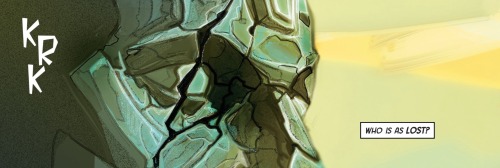
Medusa’s desperation grows and acts as a kind of beacon, a doorway that invites in a new presence.
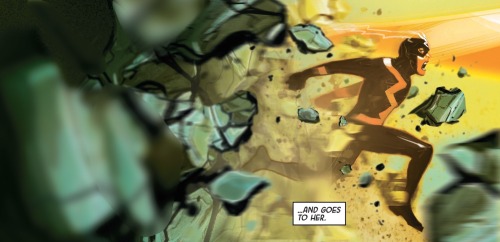
The figure of Black Bolt bursts forth from the innards if the statue… leaping to action and coming to his love’s aide.
Fighting another’s demons can be much easier than facing one’s own and Black Bolt is able to make short work of the parasite of doubt and remorse that had so threatened Medusa.
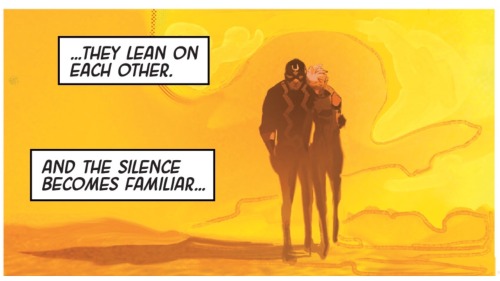
The predator defeated, Medusa and Black Bolt are unsure what to do and find themselves trekking through the etherial desert landscape for what feels like a veritable eternity. Soon they come across another decrepit statute, this one of Crusher Creel, The Absorbing Man. A one time foe of the Mighty Thor, Creel was Black Bolt’s cellmate and eventual ally whist he was incarcerated in that terrible space prison. Creel helped Black Bolt, sacrificing himself to save Black Bolt’s life and bring about an end to the oppressive and despotic Jailer.
Just as Medusa feels remorse and regret over Gorgon’s death, so too does Black Bolt feel similarly over Creel’s death. They had both been leaders of their people, bared the overwhelming responsibilities of the welfare of others. And both are bereft over the terrible decision of having to sacrifice their friends.
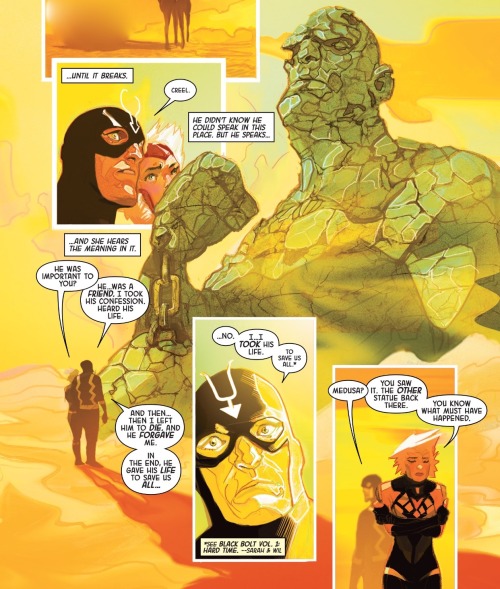
Here Black Bolt realizes that he can speak in this strange realm, that his sonic powers have no effect and he and Medusa can communicate through words. As they continue to trek onward, they talk about all that has transpired and how the two had grown apart. Black Bolt pushes down his jealousy that his former wife had found comfort in the arms of their friend, Gorgon; though he also must come to terms that she sought out this comfort because he had for too long denied it to her. Medusa had turned to Gorgon not because she had carnal needs but rather emotional needs… the need for comfort and security, the need to be treated as an equal and a partner. Whatever envy or anger Black Bolt feels over the matter is pushed aside because he knows that she is right. He hadn’t treated her as an equal, he treated her as a child who needed to be shielded and keep int he dark of terrible truths.
Might she forgive him? Does she still love him?
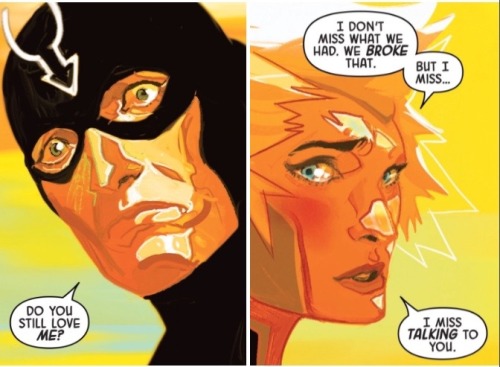
Medusa isn’t ready to say, but does admit to missing him; missing the partnership they had, how they completed each other and how Attilan prevailed when the two worked in concert. But they haven’t the time or luxury to dwell on the past, they must move forward into an uncertain future… a future that may very well entail a rekindling of what they once had.
The two are attacked before they can discuss the matter further… The Progenitors have finally navigated their way into this strange realm, intent on eliminating this new a threat. A maw opens up in the desert floor with the Overlord Progenitor within it, reaching up with to grasp Medusa with an intense gravity wave pulling her down.
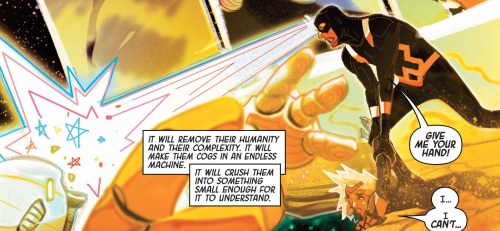
Black Bolt desperately holds onto Medusa’s arm, keep her from falling into this terrible pit. Medusa struggles to keep her grasp, but she is still overwhelmed by her guilt and regret. Suddenly she realizes that in her other hand she holds the Primagen Crystal, the crystal that failed to work for her. In that moment, Black Bolt fades away, drawn back to his own demons of the trauma bestowed onto him by the sadistic Jailer.

Medusa is left alone still grasping onto the seemingly useless shard of Primagen. This powerful substance had not worked for Medusa… did not work because she would not let it. She doesn’t feel she deserved it. She brought ruin onto her people, banished her husband to a terrible fate, engaged on an odyssey that brought the Progenitors to Earth, sent Gorgon to his death.
In the moment of sadness and regret, Medusa finally lets in all of the feelings and emotion that she has tried so desperately to keep at bay. She didn’t see herself strong enough to cope with these emotions and cut herself off from them, thinking that stoic repression was her only course of action. In this moment, however, when all appears as lost, she lets those feelings in. The emotion washes over her… she allows herself to be human as well as Inhuman, vulnerable as well as strong… and doing so facilitates the activation of the Primagen.
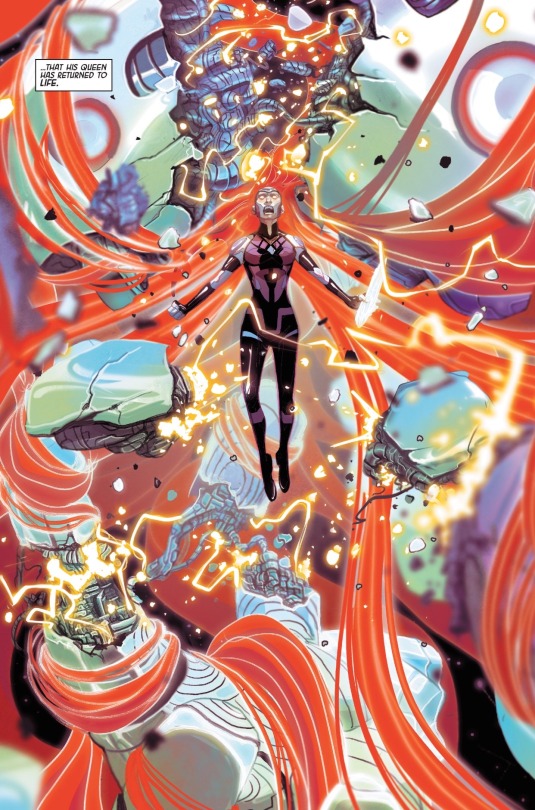
Her body is infused with the mutagenic properties, enhancing and augmenting every fiber of her being… Her illness abates in an instant and her hair grows back in red, flowing torrent.
Suddenly, Medusa finds herself back on Ariclan. Her hair has returned, longer than before so that it sweeps over the others like a flood of locks and curls. It felt like she had been gone for centuries, but in reality the whole affair had transpired in a mere instant.
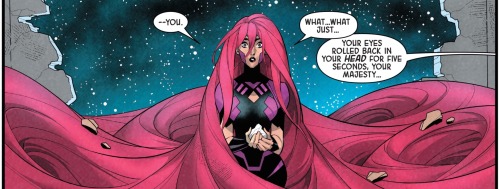
In its wake, the marauding Progenitors had been reduced to destroyed empty shells. The onslaught of pure affect and emotional catharsis that Medusa had experience in astral realm overwhelmed the circuits of pure logic possessed by The Progenitors. It was too much for them, it did not compute, and resulted in their destruction.
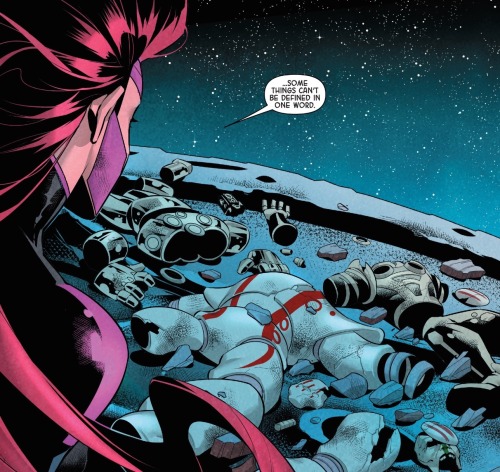
The world had been saved, the terrible future that Maximus had foreseen had been avoided. Whether or not the stolen Primagen might indeed be utilized to create new Terrigen remains to be seen, but there is great optimism that The Inhumans have won themselves a new lease on a future.
But what of the Progenitors?
Back on the World Farm, The Analytic Class Progenitors monitor the feedback coming from their fellow units who had traveled to earth. The data suggests that a power was encountered that is antithetical to The Progenitor’s base philosophy. It is a power that cannot be defeated, it is too dangerous a threat, and the Analysts make the prudent decision that the best course of action is to avoid Earth at all cost.
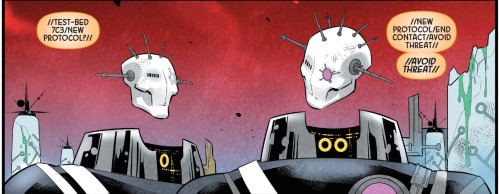
A voice bellows out from off page, demanding that the threat cannot be avoided; for it is already here. And the final page shows a Primagen-empowered Gorgon, still alive and ready to destroy these enemies once and for all. And it is here that the tale, and the story of The Royals comes to to its final conclusion.
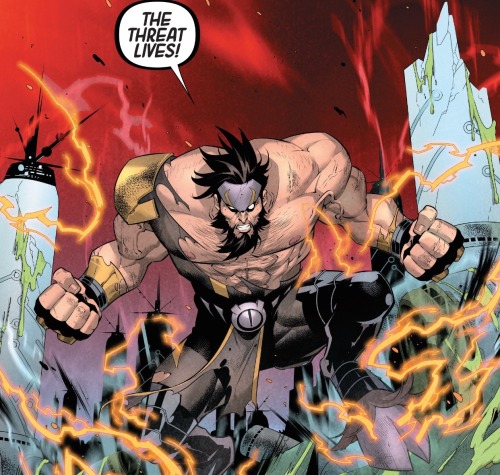
Wow. This was intense!
I had been expecting an all-out fight with the full forces of all The Inhumans doing battle against a legion of Progenitors. And I was surprised to find that instead we got an emotional journey where Medusa and Black Bolt battled their inner demons and doubts so to unlock the only thing that could possible defeat these godlike beings. And though I was a touch disappointed not to see many of my favorite Inhumans in action, this narrative decision makes a great deal of sense. Medusa and her journey has been at the heart of the series from the beginning and it’s a suitable decision that she should be the focus of its conclusion. …and it certainly helps that the other-worldly battlefield of this ordeal is so beautifully depicted by Mike Del Mundo’s peerless skill.
Emotion, poetry and magic are matters that defy rationality. Such matters can be understood, but only in a peripheral, idiosyncratic sense. No one poem effects two people in the same exact way. It’s a fundamentally human quality and a matter destructively foreign and unknowable to nigh-logical beings such as The Progenitors.
Such a thing might seem a bit corny on its surface, but is also the central crux of outré fantasy fiction. One must leap outside of the realm of logic into the loosely defined confines of madness and magic.
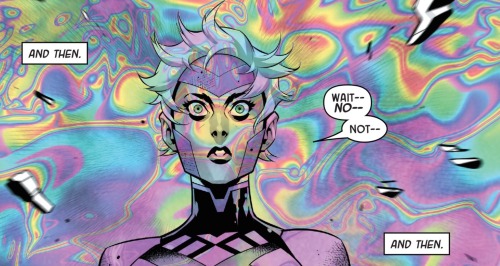
It’s a bold and risky move for Mr. Ewing to choose to have ‘feelings’ be the ultimate weapon that defeats these Progenitors… and some might find it unsatisfactory. Yet it is in absolute accord with the themes that have coursed throughout The Royals form the first issue. The Inhuman are not Mutants, fictional outgrowths of the theory of evolution. Nor are they characters of super science, engineered by far-out ideas over the outer limits of technology.
They are something in-between. Science, mixed with evolution, mixed with magic, mixed with poetry… something just outside of the mind’s ability to comprehend. They are ‘floob,’ a nonsensical word meant as a stand-in for a concept that simply cannot be accurate explained via the limitations of words.
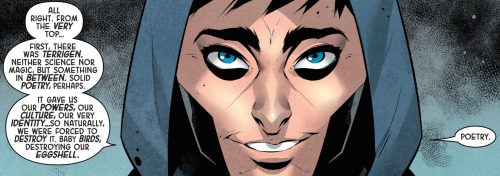
As a psychologist, and fan of the works of authors such as Frank Herbert, Michael Morecock and Ursula le Guin, this sort of stuff is right up my alley and I kind of love it. Although I also appreciate that that this might not be the case for other readers… that some might find Ewing’s venturing into the land of the unexplainable uncanny to be something of a cop-out, denying them the standard issue knock-down, drag-out battle that these finales more often entail. Still, The Royals has very much not been your standard issue super hero comic book, and an wild unconventional conclusion actually fits quite well and makes a great deal of sense.
So where does the story go from here? We still have at least three more issues of Ahmed and Ward’s fantastic Black Bolt series… and the solicitations for issue 12th issue suggests that we will get further resolution on what the future holds for Medusa, Black Bolt and their relationship. Perhaps this will also touch on what the future holds for The Inhuman as a whole. Will they relocated to the moon city of Arctillan, or will they remain on New Attilan on Earth? Will Iso remain the leader, or will the people reelect Medusa and Black Bolt as once more their queen and king?
Time will tell. The important thing that this is not the end. There is a new future in store for The Inhumans, a future not steeped in the past, but rather one whose trajectory is moving forward.
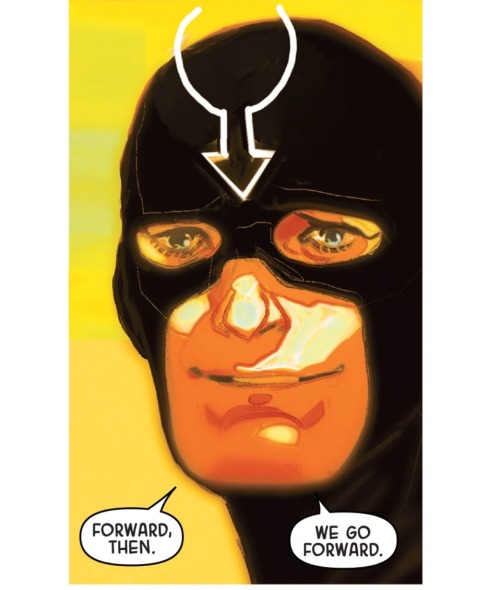
Kevin Libranda, José Villarubia both bring their A-game for the sections they illustrate, depicting the less fantastical scenes with verve and electricity, and wonderfully lively facial expressions (especially Maximus who seems to be enjoying the prospect of total annihilation just as much the prospect of salvation).
Mike Del Mundo, meanwhile, absolutely excels in creating the weird netherworld where the action takes place. I do miss Javier Rodriguez’s terrific work, but none can beat Del Mundo when it comes the impossible landscapes of a realm between science, magic and poetry. It’s just a marvel to behold.
As a franchise, the Inhuman failed to capture that sense of popularity and mainstream acceptance enjoyed by other groups like the X-Men or The Avengers. And this one-shot aptly demonstrates exactly why that has been the case. The Inhumans are weird. Their stories are the essence of strange, they don’t always make sense and require readers to make leaps into the unknown that not everyone is capable of or comfortable with. The effort to make The Inhumans more mainstream, more popular has already been abandoned and this offered Ewing and company free license to go all in, embracing the weird with both hands and offering up a finale that is… well, that is quintessentially inhuman.
Of course recommend; Five out of five Lockjaws!


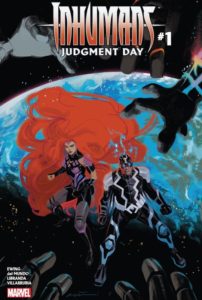
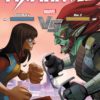 Ms. Marvel #14 Review (spoilers)
Ms. Marvel #14 Review (spoilers)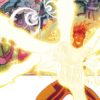 Secret Warriors #4 Review (spoilers)
Secret Warriors #4 Review (spoilers)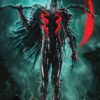 Death of The Inhumans #2 Review (spoilers)
Death of The Inhumans #2 Review (spoilers)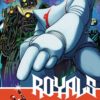 The Royals #9 Review (spoilers)
The Royals #9 Review (spoilers)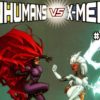 Inhumans Versus X-Men #0 Review/Recap
Inhumans Versus X-Men #0 Review/Recap